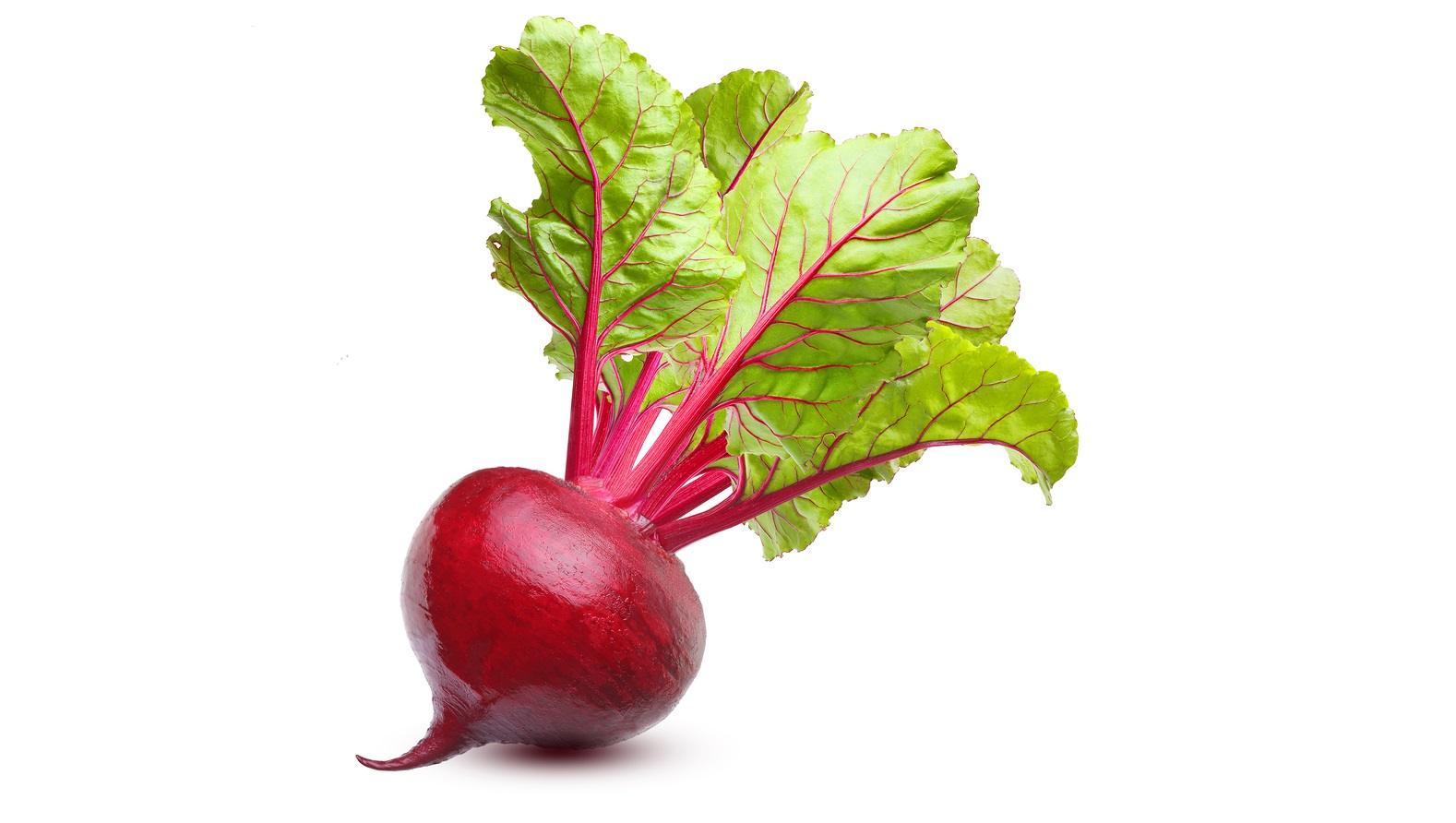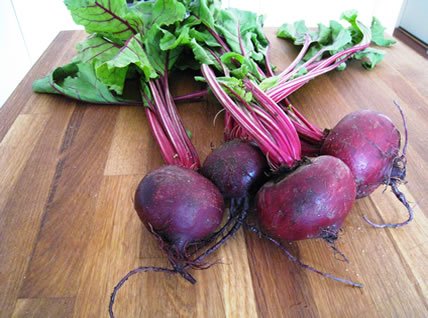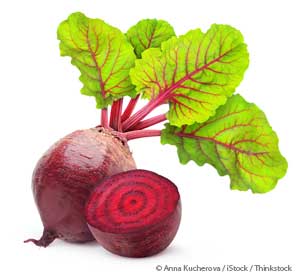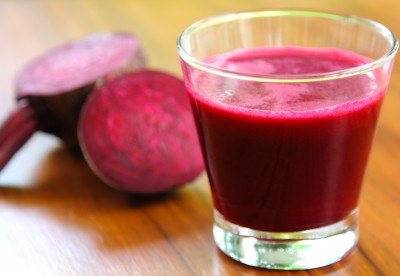Power Up With Beets
A new study has emerged that may give hope to those who may see themselves as the proverbial “90-pound weakling.” Surprisingly, the remedy can be found in the garden. The study, recently conducted at the Washington School of Medicine in St. Louis, is one of several university trials revealing that a small amount of beet juice is all it takes to beef up your exercise performance and endurance. The researchers found nine heart failure subjects who experienced the typical symptoms — loss of skeletal muscle strength, reduced ability to exercise and even evidence that quality of life was suffering. Each individual exhibited measurable improvement. The patients were given 140 milliliters — about two-thirds of a cup — of concentrated beet juice, followed by testing, which found an almost instantaneous increase in their muscle capacity by an average of 13 percent. The study was published in the journal Circulation: Heart Failure in September 2015. One of the study’s coauthors, Andrew Coggan, assistant professor of radiology at the university, asserted that’s the type of boost one might get after a few hard months of resistance training. The source of this impressive difference, studies revealed, came from nitric oxide. One of the most important benefits beet juice offers the heart is that its compounds “de-stiffen” patients’ blood vessels when the individual is at rest. This prevents the heart from having to work so hard and also demonstrates potential value to diabetics. Interestingly, it’s occurred to more than a few scientists that a similar therapy might be useful for lowering blood pressure. When testing was being done on individuals with heart failure, scientists concentrated specifically on the muscles used to extend the knee, looking for improvement in power, which they specified as a combination of force and velocity. This is crucial for athletes in training, such as sprinting or gymnastics. That easy-to-take-for-granted strength is also required by people who want to climb stairs, move furniture around, or simply get up from the toilet, an action that — if they’re unable to accomplish — is what most often puts people in a nursing home.







